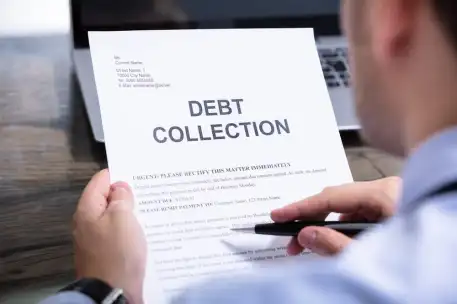What Is Commercial Debt?
Commercial debt refers to the financial obligations that businesses owe to other businesses, often arising from transactions like unpaid invoices, loans, or other financial arrangements. Unlike consumer debt, which involves individuals borrowing money for personal use, commercial debt is business-to-business (B2B) in nature. This type of debt can accumulate when one company provides goods or services to another, but the receiving company fails to pay on time. Managing commercial debt effectively is crucial for maintaining a company’s cash flow and financial health.
RELATED: What is Commercial Debt Recovery and Collection?
What Is Commercial Debt Collection?
Commercial debt collection is the process of recovering unpaid debts from businesses. It involves various strategies to ensure that the debtor pays what they owe. This can include sending reminder notices, making collection calls, and negotiating payment plans. In some cases, it may also involve legal action, such as filing a lawsuit or obtaining a court judgment. The goal of commercial debt collection is to recover the money owed in a manner that is both efficient and compliant with relevant laws and regulations. Companies can handle debt collection internally or hire specialized third-party agencies to manage the process.
RELATED: A Step by Step Guide to the Commercial Debt Collections Process
What Is the Difference Between Commercial and Consumer Debt Collection?
The primary difference between commercial and consumer debt collection lies in the nature of the debt and the legal framework governing the collection process. Consumer debt involves individuals and is subject to strict regulations, such as the Fair Debt Collection Practices Act (FDCPA), which protects consumers from abusive collection practices. Commercial debt collection, on the other hand, involves businesses and is generally less regulated, allowing for more direct and flexible collection methods. However, it is still governed by certain federal and state laws that ensure fair treatment. Additionally, commercial collections often require more specialized knowledge due to the complex nature of business transactions.
RELATED: What Are the Signs You Need Professional Help with Debt Collection?
When to Use Commercial Collection
Businesses may decide to use commercial collection services when they face challenges recovering debts on their own. This can occur when internal resources are insufficient, or when the volume of outstanding debts becomes too large to manage effectively. Using a commercial debt collection agency can be particularly beneficial if the company lacks the expertise or staff to handle complex debt recovery cases. These agencies bring specialized skills and tools that can increase the likelihood of recovering owed amounts. They also allow businesses to focus on core operations while professionals handle the collection process.
RELATED: When Is It Time To Hire a Debt Collections Agency?
When Is the Right Time to Escalate a Late Payment to a Commercial Debt Collection Agency?
Determining the right time to escalate a late payment to a commercial debt collection agency depends on several factors, including the amount owed, the length of the delinquency, and the debtor’s responsiveness. Generally, businesses should consider involving a collection agency if payments are significantly overdue—typically beyond 90 days—and the debtor has not responded to reminders or payment requests. Additionally, if the debt is substantial and impacts the company’s cash flow, it may be prudent to escalate sooner. The earlier a debt is addressed, the higher the chances of successful recovery, as older debts are often more challenging to collect.
RELATED: When to Escalate a Debt Collection Case to Legal Action?
How to Find the Right Commercial Debt Collection Agency for You
Selecting the right commercial debt collection agency involves careful consideration of several key factors. First, businesses should verify that the agency is licensed and bonded, ensuring it meets legal requirements and has the authority to operate in the relevant jurisdictions. It’s also important to evaluate the agency’s experience, particularly in the specific industry or type of debt the business is dealing with. Checking references and reviews can provide insights into the agency’s reputation and success rate. Additionally, understanding the agency’s fee structure and collection methods is crucial to ensure they align with the business’s needs and ethical standards.
Monetaria Group, for instance, offers specialized commercial debt collection services led by a team of experienced debt collection attorneys. They provide a comprehensive approach, from legal compliance to effective recovery strategies, making them a reliable partner for businesses looking to recover outstanding debts. By choosing a reputable agency, businesses can enhance their chances of recovering owed amounts efficiently and maintaining financial stability.
We’re happy you found this article informative! Go back to our blog page to find more tips, tricks and guidance on collections, to ensure your business gets paid.
If you have unpaid debts that need to be recovered, commercial debt collection may be a good option for your business. A commercial debt collection agency can help you with the process of recovering past-due accounts and provide guidance on best practices for managing accounts receivable.
Led by a team of experienced commercial debt collection attorneys, Monetaria Group has helped hundreds of businesses recover and collect their outstanding debts and payments. Schedule a FREE consultation with our expert team to see how we can help you recover your money today!

